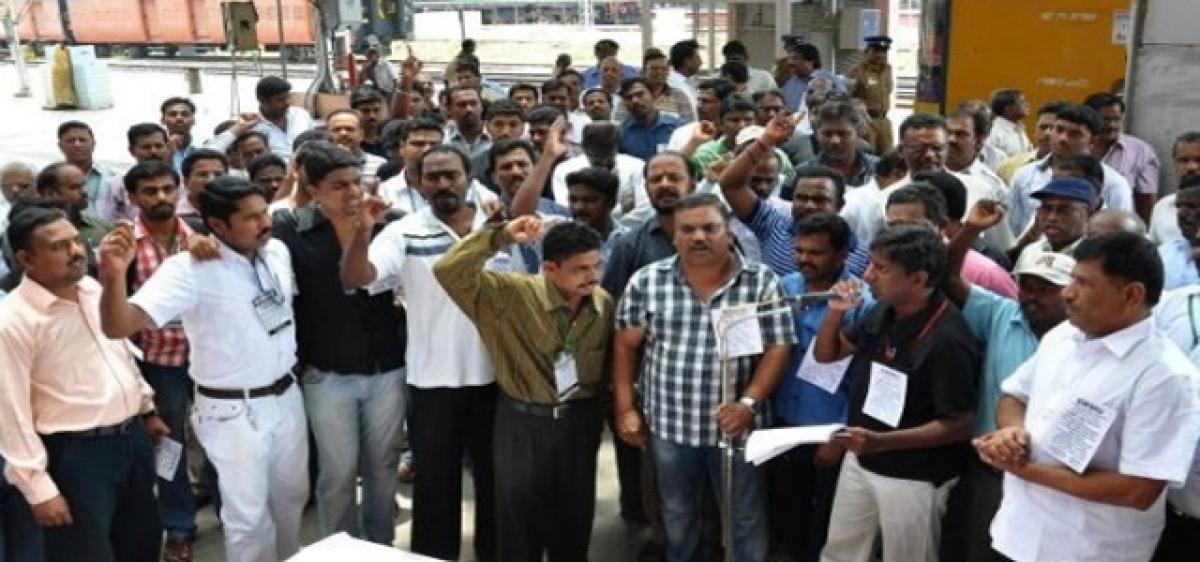Cashless treatment an eyewash: Railway Unions

The South Central Railway Employees Sangh (SCRES) has condemned the Railway administration for introducing cashless treatment scheme in emergency (CTSE) for retired employees and their dependent family members. It has contended that the scheme was in fact “cash-oriented” and not “cashless” and was not really intended for the welfare of retired employees.
Hyderabad: The South Central Railway Employees Sangh (SCRES) has condemned the Railway administration for introducing cashless treatment scheme in emergency (CTSE) for retired employees and their dependent family members. It has contended that the scheme was in fact “cash-oriented” and not “cashless” and was not really intended for the welfare of retired employees.
In the existing scheme of RELHS (Retired Employees Liberalized Health Scheme), the retired railway employee was contributing one month salary towards subscription to become entitled for health care facilities on a par with serving employees. However, the retired employee for joining in the CTSE, has to pay Rs.50,000 for private ward, Rs.25,000 for semi-private ward and Rs.10,000 for general ward.
The existing RELHS beneficiaries were also required to remit amounts for becoming eligible for treatment at private (recognised) hospitals under the CTSE scheme despite remittance of last month pay at the time of retirement on superannuation. This was obviously an additional burden on the RELHS beneficiaries.
In addition to the above, it has further been stipulated that at the time of admission in private empanelled hospitals, the beneficiaries were required to deposit money for availing treatment. This condition would compel the beneficiary to carry money for the purpose of depositing in the private hospitals even on emergency or otherwise.
This condition would defeat the very principle of providing free health care by the railways to its retired employees and their dependent family members. It raised suspicion that the CTSE scheme had been introduced to gradually wipe out the free medical facility to the retired employees.
M Raghavaiah, General Secretary of NFIR and SCRES felt that the “cashless treatment scheme” was not really “cashless,” but a “cash collection scheme.”

